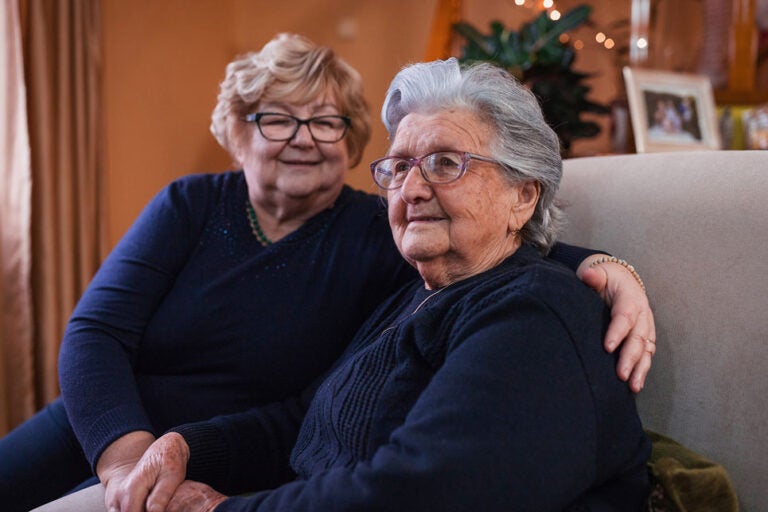Spouses aren’t the only people who share reverse mortgage loans. These financial tools also offer a way for sisters, brothers, two friends, or adult children and their parents to live together. Learn more about sharing a reverse mortgage with a friend or family member.
What are the rules about sharing a home with a reverse mortgage?
As long as the borrower continues to live in the home as their primary residence, a reverse mortgage doesn’t restrict who can live there with them. Reverse mortgage borrowers may choose to share their home with anyone they like, including siblings, friends, roommates, or non-eligible spouses. However, if the borrower on the reverse mortgage moves out or passes away, the loan becomes due and payable. Anyone not on the mortgage will likely need to leave the home.
Why might sharing a reverse mortgage be advantageous?
When a reverse mortgage ends, people who have lived in the home but aren’t listed on the mortgage do not have any protections. Eligible non-borrowing spouses do have some protections, but to be eligible, their names would have had to be listed on the mortgage documentation when the loan was taken.
However, if two people share a reverse mortgage, and one needs to leave for any reason, the remaining borrower will be allowed to stay, and the mortgage will continue (provided the borrower continues to meet their loan obligations). This is one reason why sharing a reverse mortgage might make sense for close friends, siblings, or even a parent and child who both meet the loan’s age requirements. Sharing a reverse mortgage gives all parties a level of housing security should something happen to one of them.
How to apply for a reverse mortgage with another person
Before applying for the reverse mortgage, all parties listed as borrowers must also be on the title or listed on a trust that holds the home. Otherwise, the process for applying and the eligibility requirements are the same as applying for a reverse mortgage alone. For two people to share a reverse mortgage, however, they both must meet the standard reverse mortgage eligibility requirements including the minimum age. And they must both go through the lender’s financial assessment. If both parties are not eligible for a reverse mortgage, the non-eligible party cannot be on the loan, with one exception: eligible non-borrowing spouses.
What are non-borrowing spousal protections?
If you meet the age requirement for a reverse mortgage, but your spouse doesn’t, they may be listed on the loan documents as an “eligible non-borrowing spouse.” This eligibility is dependent on the non-borrower meeting HUD’s eligibility requirements. These protections may be limited to Home Equity Conversion Mortgages only.
With this designation, spouses may continue to live in the home after the borrowing spouse passes away, provided they meet their reverse mortgage contract requirements. That includes maintaining the house and paying property taxes and homeowners insurance.
After the borrower’s passing, the loan doesn’t need to be paid off until the surviving spouse sells the house or moves out, provided they comply with their loan terms. However, the surviving spouse no longer has access to reverse mortgage lines of credit or receives cash payments from the loan.
Can I add people to my existing reverse mortgage?
It isn’t possible to add another person to an existing reverse mortgage. To add someone to your mortgage, you would need to refinance or get a new loan.
Making an important decision that impacts your financial situation should not be taken lightly. Before entering a mortgage with anyone, it is wise to consult with trusted finance and estate planning professionals.



